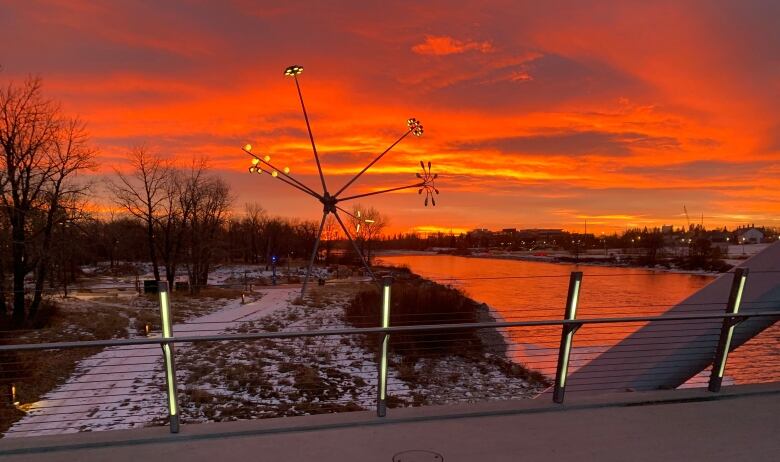Calgary votes Yes on fluoride. Daylight saving is split, voters lean toward nixing equalization
In Senate race, Conservative-affiliated candidates won in allmajor cities sharing resultsso far

Calgary voters turned outin support of adding fluoride back intothe city's tap water with roughlytwo-thirds of the ballotsmarked for the Yes side.
On the other ballot questions, the vote was tighter.
Calgary residentsleantoward removing the principleof equalization from the Canadian Constitution; they are almost evenly split on the question of daylight saving.
Daylight savingand equalization are provincial questions, so initial reports give only a suggestion of where all Albertans will land. Several smaller cities also reported.
In the Senate race, the Conservative-affiliated candidates won in allmajor cities sharing resultsso far.
Here are the details.
Fluoride intapwater
The plebiscite question for Calgarians was:Are you in favour of reintroducing fluoridation of the municipal water supply?
The Yes side took an early lead and kept winning. By the time all polls reported, the Yes side had 62per cent of the vote. The Noside had 38per cent.
It's an issueCalgary residents voted on in1998 and 1989, when they voted Yes to fluoride.Calgary's city council chose to stop adding fluoride to the city's water supply in 2011.
Whatever the outcome of the plebiscite, city council will make the final decision.

Daylight savingand equalization
Results aren't final on these questions until Elections Alberta gathers and tabulates the vote from every municipality. But with Calgary and several smaller cities reporting, we have an early guess as to the direction.
These votes are close.
In Calgary, 58 per cent of voters selected Yeson equalization in favour of removing it from the Canadian Constitutions.
Lethbridge was similar with 59 per cent voting Yes. Grande Prairie and Red Deer werehigher, with 69 per cent supporting the removal of equalization in both cities. Edmonton and the Municipality of Wood Buffalo have said they will submitresults to Elections Alberta firstrather than releasing them publicly now.
The vote on daylight savingwas even tighter. In Calgary, 52 per cent of voters said No,which is a vote to keep the current twice-a-year changing of the clocks.
In Lethbridge, 51 per cent voted Yes to stay on daylight saving time all year-round, and inRed Deer, voters were 55 per cent on the Yesside. But inGrande Prairie, voters chose No with 56 per centof the vote.
Keep in mind, all the results must be added together and released by Elections Alberta before the results are final.
Elections Alberta says it will release provincewide results Oct. 26.
These two questions were:
- Should section 36(2) of the Constitution Act, 1982, Parliament and the Government of Canada's commitment to the principle of making equalization payments, be removed from the Constitution?
- Do you want Alberta to adopt year-round daylight savingtime, which is summer hours, eliminating the need to change our clocks twice a year?
A Novote means Albertans will continue changing their clocks twice a year.This Elections Alberta chartshows how the change would impact the timing of sunrises and sunsets in the province.

The Senate election
Voters were allowed to vote for up to three Senate candidates. Thirteen people ran as eitherIndependent or affiliated with the Conservative Party of Canada or the People'sParty of Canada.
In Calgary, Grande Prairie, Red Deerand Lethbridge, the Conservative candidates had the most votes. That's Pam Davidson, Erika Barootes and MykhailoMartyniouk.
Other results may be available on the websites of other cities, towns and municipalities.
But this does not necessarily mean these people will end up in the Senate: senators in Canada are not elected, they're appointed.
It is up to the sitting prime minister of Canada to decide whether any of these individuals will beappointed to the Senate when a positionopens. The prime minister advises the Governor General, who makes the actual appointment to the upper house of Parliament.












_(720p).jpg)


 OFFICIAL HD MUSIC VIDEO.jpg)
.jpg)



























































































